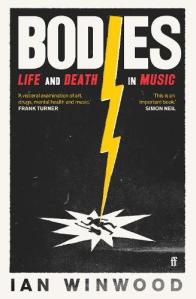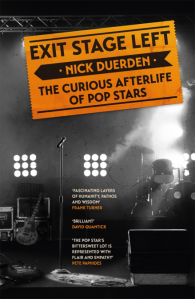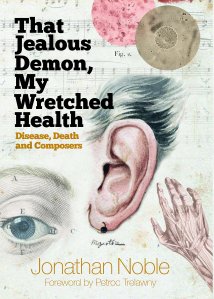June 12, 2022 · 7:18 p.m.
I don’t usually read a lot of books on music in such a short amount of time, but I’ve read some good non-fiction titles on the subject this year, and they largely conclude that working in the music industry isn’t very good. your health.
A Seat at the Table: Women on the Frontline of Music by Amy Raphael is a collection of 18 interviews with women working in the music industry. Interviews were conducted in 2018-19 with singers and composers of different genres, and composer Jessica Curry, producer Catherine Marks and DJ Clara Amfo reflect on issues similar to sexism and racism in the industry. Somehow, the experiences of Alison Moyet and Tracey Thorn, who rose to fame in the 1970s and 1980s, are far removed from the musicians who are starting today thanks to social media pressures, #MeToo and record sales. via streaming, but there are also some frustrating similarities, such as not taking them as seriously as their male counterparts. Raphael has clearly reflected on the range of interviewees in this collection and it would be interesting to compare this to the 1995 book “Never Mind the Bollocks: Women Rewrite Rock”, which includes interviews with Debbie Harry, Courtney. Love and Bjork.

 Exit Stage Left: The Curious Afterlife of Popstars by Nick Duerden is another collection of photo interviews, this time made out of pop stars who have surpassed the pinnacle of fame, “where are they now?” collection. Duerden includes a fairly wide range of pop and rock bands such as David Gray, The Darkness, Shaun Ryder, S Club 7’s Paul, Chumbawumba, Suzanne Vega and Billy Bragg, and the successful tracks, which suffer from Second Difficult Album Syndrome, are new. . actions and simply out of fashion in a confusing industry that is only interested in the next big thing. Some of the interviewees look favorably on the time spent in the spotlight and are content to work on the circuit of nostalgia, while others are bitter or angry at how they were treated at the time or tried to completely reinvent themselves since their first reputation. . With over 30 artists and bands gathered here, the interviews themselves are pretty short and bittersweet, and I can’t help but wonder if the most interesting stories will be told by those who wouldn’t accept having an interview for a book like this.
Exit Stage Left: The Curious Afterlife of Popstars by Nick Duerden is another collection of photo interviews, this time made out of pop stars who have surpassed the pinnacle of fame, “where are they now?” collection. Duerden includes a fairly wide range of pop and rock bands such as David Gray, The Darkness, Shaun Ryder, S Club 7’s Paul, Chumbawumba, Suzanne Vega and Billy Bragg, and the successful tracks, which suffer from Second Difficult Album Syndrome, are new. . actions and simply out of fashion in a confusing industry that is only interested in the next big thing. Some of the interviewees look favorably on the time spent in the spotlight and are content to work on the circuit of nostalgia, while others are bitter or angry at how they were treated at the time or tried to completely reinvent themselves since their first reputation. . With over 30 artists and bands gathered here, the interviews themselves are pretty short and bittersweet, and I can’t help but wonder if the most interesting stories will be told by those who wouldn’t accept having an interview for a book like this.
 Moving away from the abuses of pop music, I go in and out That jealous devil, my miserable health: illness, death, and composers by Jonathan Noble which It examines the physical and mental health of 70 composers. From Mozart’s many ills during his youth to Beethoven’s deafness and Schumann’s possible bipolar disorder, “This Jealous Devil” is very accurate and full of oddities that can occasionally be helpful in answering questions about the University Challenge. Noble is a retired surgeon whose medical specialization allows him to examine how accurate some of the reported diagnoses were and how they could go about medical treatment today. dense but fascinating, this offers a unique insight into the lives of great composers and how their health condition affected their work.
Moving away from the abuses of pop music, I go in and out That jealous devil, my miserable health: illness, death, and composers by Jonathan Noble which It examines the physical and mental health of 70 composers. From Mozart’s many ills during his youth to Beethoven’s deafness and Schumann’s possible bipolar disorder, “This Jealous Devil” is very accurate and full of oddities that can occasionally be helpful in answering questions about the University Challenge. Noble is a retired surgeon whose medical specialization allows him to examine how accurate some of the reported diagnoses were and how they could go about medical treatment today. dense but fascinating, this offers a unique insight into the lives of great composers and how their health condition affected their work.
Filed under Books






